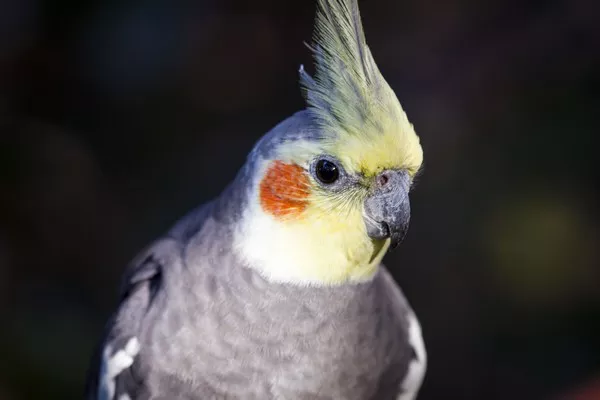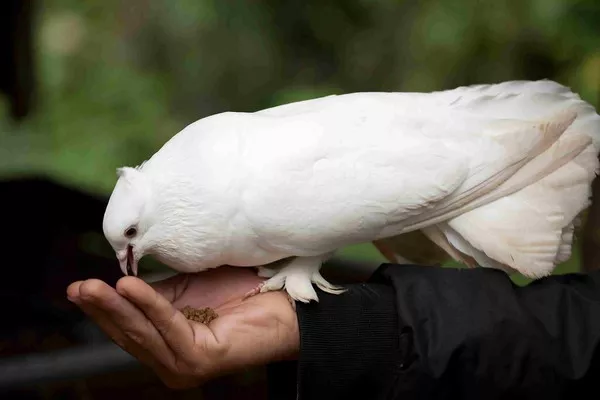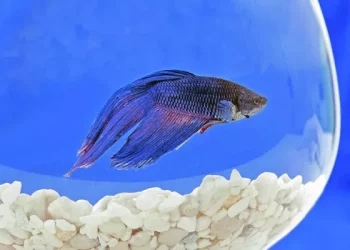Guinea pigs and rabbits are often thought of as similar pets due to their size, shape, and gentle nature. Both are herbivores, both enjoy a diet rich in hay, and both are popular pets in many homes around the world. However, despite these similarities, their dietary needs are quite different. One common misconception is that guinea pigs can eat rabbit food, but this is not the case. In this article, we will explore why guinea pigs should not eat rabbit food and discuss the unique dietary needs of guinea pigs to help ensure they remain healthy and happy.
Understanding the Basics of a Guinea Pig’s Diet
Guinea pigs, also known as cavies, are small rodents native to the Andean region of South America. They are herbivores, which means their diet consists of plant-based foods, particularly grasses, herbs, and vegetables. Like all herbivores, guinea pigs need a diet that is high in fiber, low in fat, and rich in essential nutrients to support their digestive system, which is designed for a high-fiber diet.
A guinea pig’s digestive system is different from that of many other animals, including rabbits. Guinea pigs have a specialized cecum, which is part of their digestive tract responsible for fermenting fiber and breaking down plant materials. This process is crucial for absorbing nutrients like vitamin C, which guinea pigs cannot produce on their own. Because of this, they require a constant supply of fresh hay, vegetables, and vitamin C to maintain their health.
The Nutritional Requirements of Guinea Pigs
To better understand why guinea pigs can’t eat rabbit food, it’s essential to know the specific nutritional needs of guinea pigs:
High Fiber: Guinea pigs need a fiber-rich diet to keep their digestive systems working properly. Fiber aids in digestion and helps prevent gastrointestinal problems, such as bloat or impaction. The most important source of fiber for guinea pigs is hay, specifically grass hay such as timothy hay, meadow hay, or orchard grass.
Vitamin C: Unlike humans and many other animals, guinea pigs cannot produce vitamin C naturally, so they must obtain it from their diet. A lack of vitamin C can lead to serious health problems, including scurvy, a disease that causes fatigue, bleeding gums, joint pain, and even death. Fresh vegetables like bell peppers, kale, and parsley, along with vitamin C supplements, help meet this vital requirement.
Low Fat and Protein: Guinea pigs need a diet that is low in fat and protein. Too much protein can lead to kidney problems, while a high-fat diet can contribute to obesity. Foods like alfalfa hay, which is high in protein and calcium, are not suitable for adult guinea pigs as they can cause urinary issues and kidney damage.
Calcium: While calcium is an essential nutrient for guinea pigs, an excessive amount can cause problems. Guinea pigs require calcium for strong bones and teeth, but too much calcium can lead to bladder stones, kidney issues, and other health problems. This is why the calcium content of their food needs to be carefully balanced.
The Composition of Rabbit Food
Rabbit food typically consists of a variety of ingredients, such as hay, pellets, dried vegetables, and sometimes fruits. While some of these ingredients may be beneficial for guinea pigs, others are not suitable. The primary differences between guinea pig and rabbit food lie in the protein content, calcium levels, and the types of hay used.
Protein Content: Rabbit food often contains more protein than guinea pigs need. While rabbits are herbivores, their digestive system is different from that of guinea pigs. Rabbits can handle higher levels of protein and calcium in their diet, especially when they are young or still growing. However, guinea pigs have a much lower tolerance for protein, and feeding them rabbit food with excessive protein can strain their kidneys and cause long-term health issues.
Calcium Levels: Rabbit food often contains higher levels of calcium than guinea pig food, especially in the form of alfalfa hay. Alfalfa is commonly used in rabbit food because it is high in protein and calcium, but it is not ideal for guinea pigs, particularly adult ones. Too much calcium can lead to kidney problems and bladder stones in guinea pigs, which are painful and often require medical intervention.
Pellets and Additives: Rabbit pellets are often formulated to meet the nutritional needs of rabbits, which are different from those of guinea pigs. These pellets may contain added vitamins, minerals, or other supplements that are either unnecessary or harmful to guinea pigs. For example, some rabbit foods contain high amounts of sugar or added preservatives, which are not suitable for guinea pigs and can lead to obesity, digestive issues, or even dental problems.
Vegetable and Fruit Content: While some rabbit foods may include dried vegetables or fruits, these can be too sugary or acidic for guinea pigs. Fresh vegetables and fruits in moderation are a healthier option for guinea pigs, as they provide necessary nutrients and hydration without the added sugars or preservatives found in dried treats.
The Risks of Feeding Guinea Pigs Rabbit Food
Feeding guinea pigs rabbit food instead of their own specially formulated food can cause a range of health issues. Here are some of the key risks associated with feeding guinea pigs food designed for rabbits:
Kidney and Urinary Issues: As mentioned earlier, guinea pigs are highly sensitive to excess protein and calcium in their diets. Rabbit food, particularly those containing alfalfa hay, can lead to an overload of these nutrients, which can damage their kidneys and cause urinary tract issues like bladder stones and kidney failure.
Obesity: Rabbit food often contains a higher fat content, which can lead to obesity in guinea pigs. While guinea pigs need fat in their diet, too much can contribute to weight gain, which in turn increases the risk of heart disease, diabetes, and other health issues. Guinea pigs need a diet that is primarily composed of hay, with a smaller portion of pellets and fresh vegetables.
Digestive Problems: Guinea pigs have a delicate digestive system that is highly dependent on fiber to function properly. If they are fed rabbit food, especially if it is not high in fiber, it can lead to digestive problems such as constipation or diarrhea. The excess protein and fat in rabbit food can also upset the balance of bacteria in the gut, leading to further digestive disturbances.
Dental Problems: Guinea pigs have ever-growing teeth, and their diet needs to help wear down these teeth naturally. Hay, which is high in fiber, plays a crucial role in this process. Rabbit food, on the other hand, may not provide the necessary fiber to keep a guinea pig’s teeth in check, leading to overgrowth and dental issues, which can be painful and require veterinary care.
Scurvy: A diet that lacks adequate vitamin C is a serious risk for guinea pigs. While rabbit food may contain some vitamin C, it is often not enough to meet a guinea pig’s needs. Without proper vitamin C, guinea pigs are at risk of developing scurvy, which can cause a host of problems, including lethargy, joint pain, and bleeding gums. Guinea pigs require a steady supply of vitamin C, which they can get from fresh vegetables and specially formulated guinea pig pellets.
How to Properly Feed Your Guinea Pig
To ensure that your guinea pig remains healthy, it is important to provide them with a well-balanced diet that is specifically designed for their needs. Here are the key components of a guinea pig’s diet:
Hay: The majority of a guinea pig’s diet should consist of high-quality hay. Timothy hay is the most commonly recommended type, as it is high in fiber and low in calcium. Hay should be available to your guinea pig at all times, as it aids in digestion and helps prevent obesity and dental problems.
Fresh Vegetables: Guinea pigs should be given fresh vegetables daily, such as bell peppers, kale, cilantro, spinach, and parsley. These vegetables provide essential vitamins and nutrients, especially vitamin C. Be sure to avoid giving them too much lettuce, as it can cause digestive upset.
Pellets: Guinea pig pellets should be high in fiber and free from seeds, nuts, and added sugar. It is important to choose pellets that are specifically formulated for guinea pigs, as rabbit pellets contain too much protein and calcium. A small amount of pellets (about 1/4 cup per guinea pig per day) is sufficient.
Fruits: Fresh fruit can be given in moderation as a treat. Fruits like strawberries, apple slices, and blueberries are healthy and provide variety in their diet. However, fruits should not make up a significant portion of their daily intake due to their high sugar content.
Fresh Water: Guinea pigs need access to fresh, clean water at all times. You can offer water in a bottle or bowl, but it is essential to ensure it is changed daily to avoid contamination.
Conclusion
While guinea pigs and rabbits may share some similarities in appearance and behavior, their dietary needs are quite different. Feeding guinea pigs rabbit food can lead to a variety of health issues, including kidney problems, obesity, and digestive disturbances. To ensure that your guinea pig remains healthy and happy, it is crucial to provide a diet that is tailored to their unique needs, focusing on fiber-rich hay, fresh vegetables, vitamin C, and appropriate guinea pig pellets. By understanding these differences and feeding your guinea pig the right foods, you can help them live a long, healthy life.
Related Topics:

















